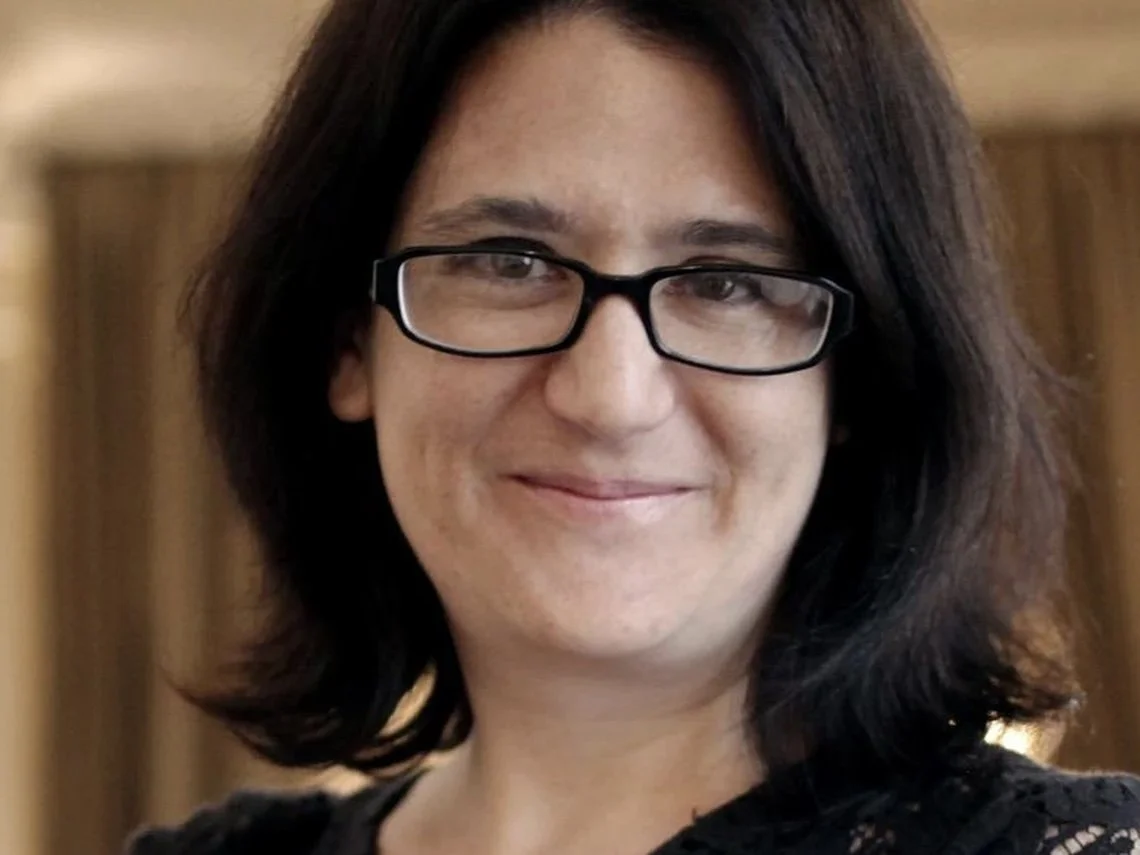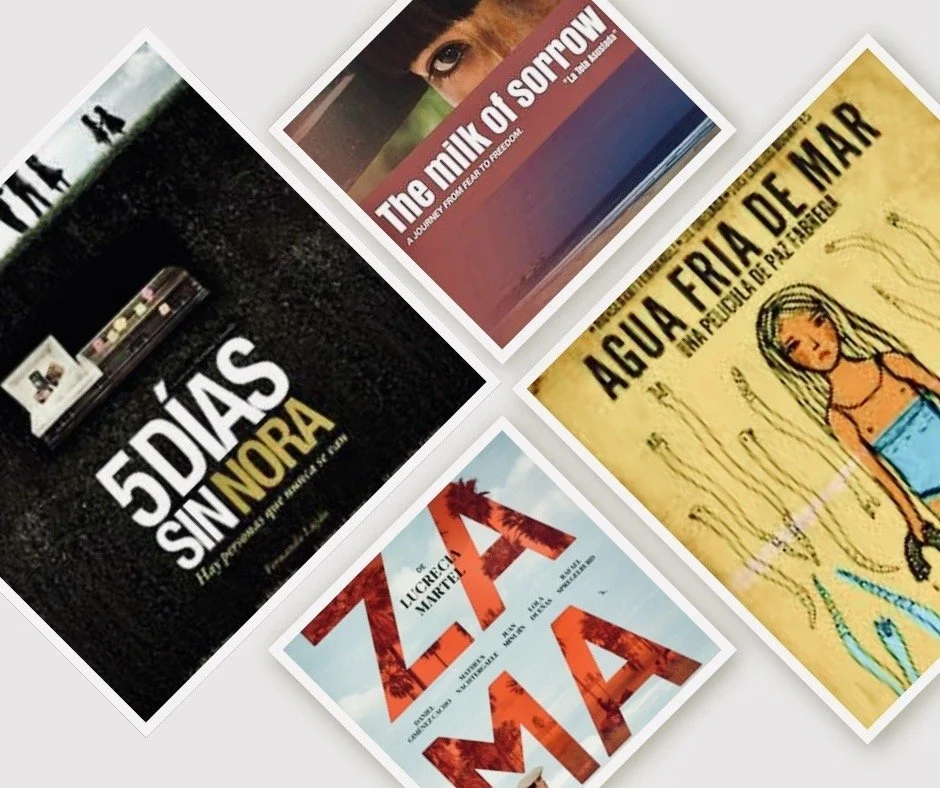Celebrating Hispanic Heritage Month: The Powerful Impact of Latina Directors In Cinema
Film is more than entertainment; it's a window into our cultures, our stories, and our struggles. As we celebrate Hispanic Heritage Month, it's essential to recognize the Latina filmmakers who are reshaping global cinema. These storytellers don’t just entertain; they challenge societal norms, uplift women, and amplify the fight for gender equality.
Paz Fabrega
In an industry long dominated by male voices, Latina directors are stepping into the spotlight. With bold visions, and powerful narratives, they bring fresh perspectives to the screen; reminding us that cinema is a force for social change. Their films explore themes like feminism, empowerment, and identity, offering a space where women’s voices are not only heard but celebrated.
Let’s take a closer look at some of the most impactful Latina directors transforming film today.
Claudia Llosa: Breaking Barriers with Bold Storytelling
One of the most prominent Latino filmmakers of our time, Claudia Llosa from Peru, has earned international acclaim for her unique storytelling style. In 2009, she became the last Latina filmmaker (to date) nominated for an Academy Award for Best Foreign Language Film with The Milk of Sorrow (La Teta Asustada). The film explores trauma and resilience among women in post-conflict Peru, delving into themes of silence, fear, and healing.
Llosa’s work gives voice to marginalized women whose stories are too often untold. Her films challenge us to confront societal wounds and reflect on the emotional toll of violence. and psychological impact of violence. Through powerful, emotionally rich narratives, Llosa inspires women to find their voice and healing; making her a vital figure in both cinema and the broader fight for equality.
Lucrecia Martel: The Art of Subversive Cinema
Lucrecia Martel is one of Latin America’s most critically acclaimed directors. Her films, including The Headless Woman (La Mujer Sin Cabeza) and Zama, are hailed as masterpieces of subversive cinema. Known for her rich visual language and psychological depth, Martel explores complex power structures, gender roles, and class.
Often centering on women navigating patriarchal environments, her work gives voice to the silenced. Martel's style is layered and introspective, using mood and atmosphere to explore the inner lives of her characters. Through this lens, she creates space for reflection on broader social injustices. Her contributions to feminist cinema continue to inspire a generation of filmmakers and audiences alike.
Paz Fabrega: Breaking Through Global Barriers
Paz Fábrega made history as the first Costa Rican director to have a film featured at the Tribeca Film Festival. Her acclaimed film Agua Fría de Mar is a meditative exploration of a young woman’s journey toward self-discovery, independence, and emotional growth — themes central to female empowerment.
Fábrega’s storytelling blends emotional intimacy with realism, shining a light on voices often left out of mainstream cinema. Her success marks a major milestone for Central American cinema, and her work continues to uplift the stories and experiences of young women across the region.
Mariana Chenillo: A Trailblazer in Mexican Cinema
Mariana Chenillo made history as the first female director to win Best Picture at Mexico’s prestigious Ariel Awards. Her film Cinco Días Sin Nora (Nora’s Will) gained widespread acclaim and signaled a shift in Mexican cinema, proving that women could lead the way in storytelling and direction.
Chenillo’s films often focus on family dynamics, personal identity, and the evolving roles of women’s in society. Her voice is both subtle and powerful, challenging traditional gender roles and portraying the female experience with authenticity and nuance. She paved the way for new generations of female directors in Latin America.
The Global Influence of Latino Male Directors
While this post focuses on Latina filmmakers, it’s important to acknowledge of Latino male directors who have also shaped the landscape of global cinema. Directors like Pedro Almodóvar, Alejandro González Iñárritu, Alejandro Amenábar, and Alfonso Cuarón have elevated the global profile of Hispanic filmmakers.
Almodóvar, in particular, is known for his powerful portrayals of complex female characters and themes of gender and identity. Meanwhile, Iñárritu and Amenábar have delivered deeply human stories that transcend borders. Their success has helped open doors for a more inclusive film industry — one where women filmmakers can thrive.
A Cinematic Revolution: Women Telling Their Stories
As we reflect on Hispanic Heritage Month, we honor the groundbreaking contributions of Latina directors who are shaping how we see and tell stories. Through their powerful films, they’re pushing boundaries, uplifting underrepresented voices, and leading a cinematic revolution rooted in feminism, equality, and cultural identity.
Directors like Claudia Llosa, Lucrecia Martel, Paz Fábrega, and Mariana Chenillo are not only breaking industry barriers; they’re helping define the future of film. Their work reminds us that women’s stories are essential, urgent, and deserve a place at the center of global conversations.
Pride, Progress, and the Power of Storytelling
While Hispanic Heritage Month is a 30-day celebration of our community’s rich culture and history, as a Latina, I know our pride runs all year long. It’s deeply moving to witness how Latino filmmakers, especially women, continue to amplify their voices, defy expectations, and change the world through storytelling.
Their work is living proof of the resilience, creativity, and determination of Latina women and a reminder that the camera, in the right hands, can be one of the most powerful tools for change.
Inspired by these trailblazing Latina directors?
Share this post, comment below, and follow us for more Hispanic stories during Heritage Month! If you enjoy this, check out our articles on The Legacy of Latin Music and Hispanic Art Iconic Female Artists




